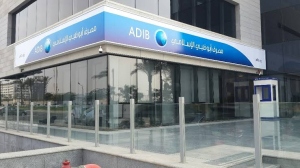OJK to regulate dividend distribution in banks
The Financial Services Authority (OJK) intends to regulate the mechanisms of profit distribution and dividend sharing among banks. OJK noted that the dividend payout ratio provided by the national banking industry to shareholders has been excessively high. Ideally, banks should prioritize allocating profits to strengthen their capital.
Dian Ediana Rae, the Executive Director of Banking Supervision at OJK, explains that this regulation is necessary for supervisory purposes.
Dian believed that profit distribution should consider investment needs, particularly in infrastructure and technology development, to enable banks to compete in the digital era and ensure ongoing business growth.
"Consequently, banks will have continuously improving performance over time, which will ultimately also impact the value received by shareholders," she said.
OJK plans to issue this policy soon, as part of efforts to strengthen the governance of general banks.
Common practice
Dian stated that regulating bank dividend payments is common practice. In various countries, dividend payout ratio limits are set by regulators based on the bank's financial performance.
Performance indicators considered include capital, asset quality, or non-performing loan (NPL) ratios, along with macroeconomic conditions.
Regulating dividend payout ratios is an anticipatory measure to reinforce banking resilience, particularly during the Covid-19 pandemic.
No percentage specified
However, Dian clarifies that OJK will not specify a specific percentage for the dividend payout ratio that banks can distribute to their shareholders. Instead, OJK will require banks to have a dividend distribution policy and communicate it to shareholders.
The mandatory dividend distribution policy formulated by banks should consider both internal and external factors in determining the dividend amount.
It should proportionally balance the interests of the bank and investors. The policy should also outline the necessary approval and authority mechanisms.
OJK will then supervise and evaluate the policy created by banks and its implementation. This oversight is essential to ensure that the strengthening needs of the bank are met while protecting the interests of shareholders.
"If there are indications of imprudent dividend distributions that could jeopardize business continuity, OJK has the authority to take action."
Substantial dividends reflect strong performance
Among Indonesia's banks, the practice of offering substantial dividends reflects their strong performance.
For instance, in the 2022 fiscal year, PT Bank Rakyat Indonesia (Persero) Tbk, a state-owned enterprise, allocated dividends of IDR 43.5 trillion or 85% of its net profits.
Bank Central Asia Tbk (BCA) stands out among private banks, distributing dividends of IDR 25.3 trillion or 62% of its net profits in the previous year.
BCA's Executive Vice President of Corporate Communication & Social Responsibility, Hera F. Haryn, states that the company will consider OJK's proposed mechanism.
Market expresses negative sentiments
While the OJK's plan is seen as beneficial, some in the market anticipate negative sentiment and industry volatility. Alfred Nainggolan, Head of Research at Praus Capital, suggests that this policy might create negative sentiment due to the perceived violation of shareholders' rights established in laws and prospectuses during initial public offerings (IPOs).
Nevertheless, proponents of the regulation, like Piter Abdullah Redjalam from Segara Institute, believe it's a reasonable approach to ensure balanced financial health and sustainable growth for the banking sector.
Tag
Already have an account? Sign In
-
Start reading
Freemium
-
Monthly Subscription
20% OFF$29.75
$37.19/MonthCancel anytime
This offer is open to all new subscribers!
Subscribe now -
Yearly Subscription
33% OFF$228.13
$340.5/YearCancel anytime
This offer is open to all new subscribers!
Subscribe now







